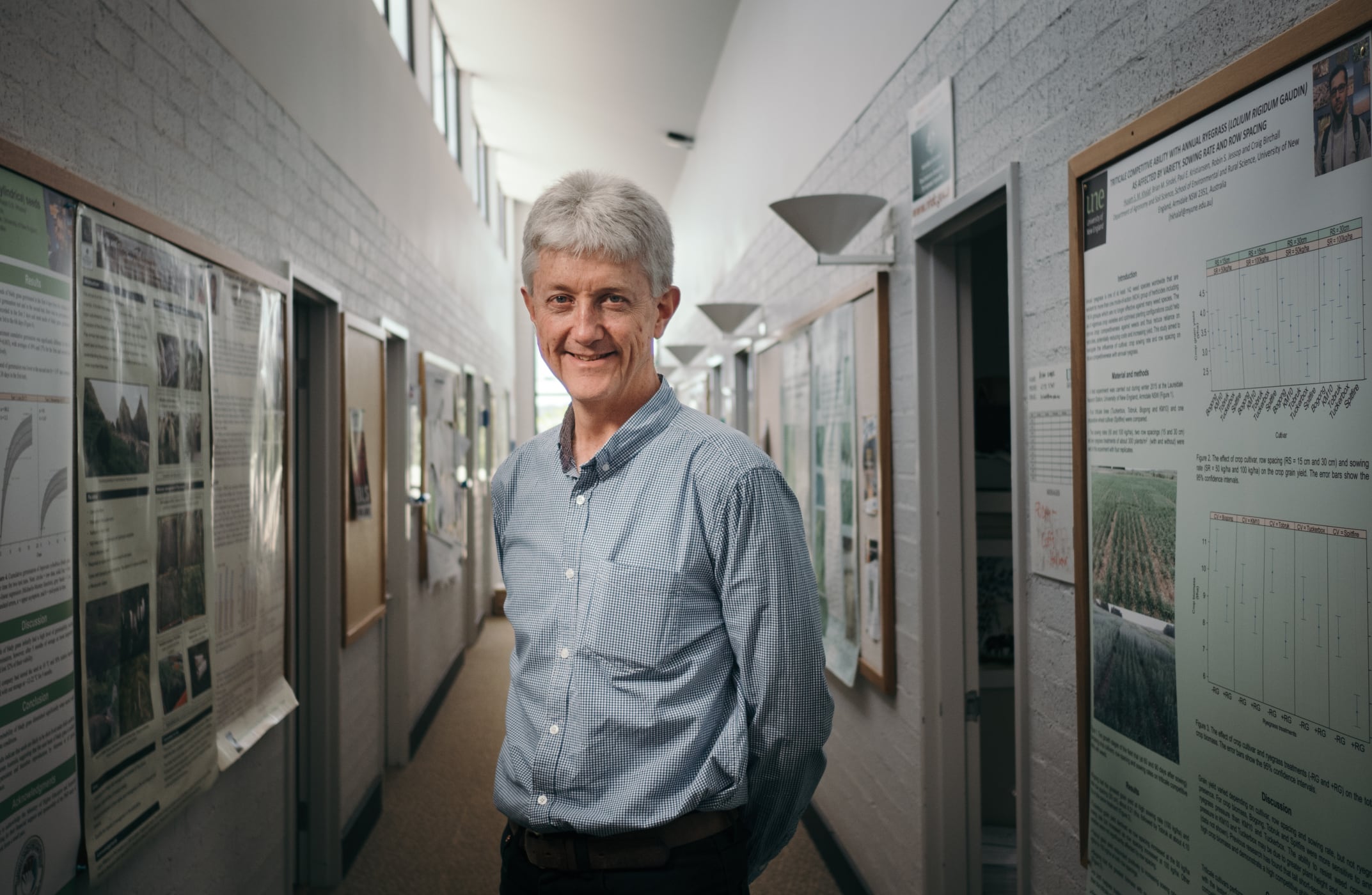Armidale is set to become a high-tech food hub following an announcement that the Future Food Systems Co-operative Research Centre (FFS CRC) was successful in its bid for Federal funding.
The University of New England (UNE) is the CRC’s only regional university research partner. UNE will play a central role in the development of new high-value food production and delivery systems for the regions.
The Federal Government today committed $35 million towards the FFS CRC, which adds to $149.6m of cash and in-kind funds the CRC has received from its 57 participants.
An initiative of the NSW Farmers Association, the FFS CRC seeks to optimise the productivity of regional and peri-urban food systems. It will invest in research in taking new products from prototype to market, and for developing efficient provenance-protected supply chains from farm to consumer.
UNE Professor Brian Sindel, who coordinated the university’s participation in the CRC bid, said UNE will contribute expertise across a range of disciplines to support increased agricultural productivity and profitability.
“We will be working with producers like Costas Guyra Tomato Exchange to further improve its production and recycling systems, and assisting new horticultural industries, and industry partners like Oz Medicann and Stump Jump, to produce new food and pharmaceutical products in the region,” Prof. Sindel said.
“We will be also working closely with Armidale Regional Council and other CRC partners to explore how infrastructure projects like the Armidale Airport Precinct and water pipeline from Malpas Dam to Guyra can support a new food hub in the New England region.”
“This idea of regional food hubs is central to the FFS CRC concept. The aim is to increase high-value food production in closed systems that recycle water, energy and waste, alongside improved logistics for rapid transport of fresh nutrient-dense produce to domestic and overseas markets.”
Food hubs are planned for five other areas: Liverpool and Coffs Harbour in NSW, Mildura in Victoria, Peel in Western Australia and Darwin.
Training and education in horticulture and food production systems will also be a key component of the CRC’s activities.
The Centre will support scholarships for 60 PhD students to undertake research within areas of interest. UNE will take a leading role in training and education, although its share of PhD students has not yet been established.
News of the successful CRC bid arrived on the same day that UNE learned that its Agriculture and associated research has been ranked “well above world standard” in the latest Excellence in Research for Australia (ERA) National Report.


